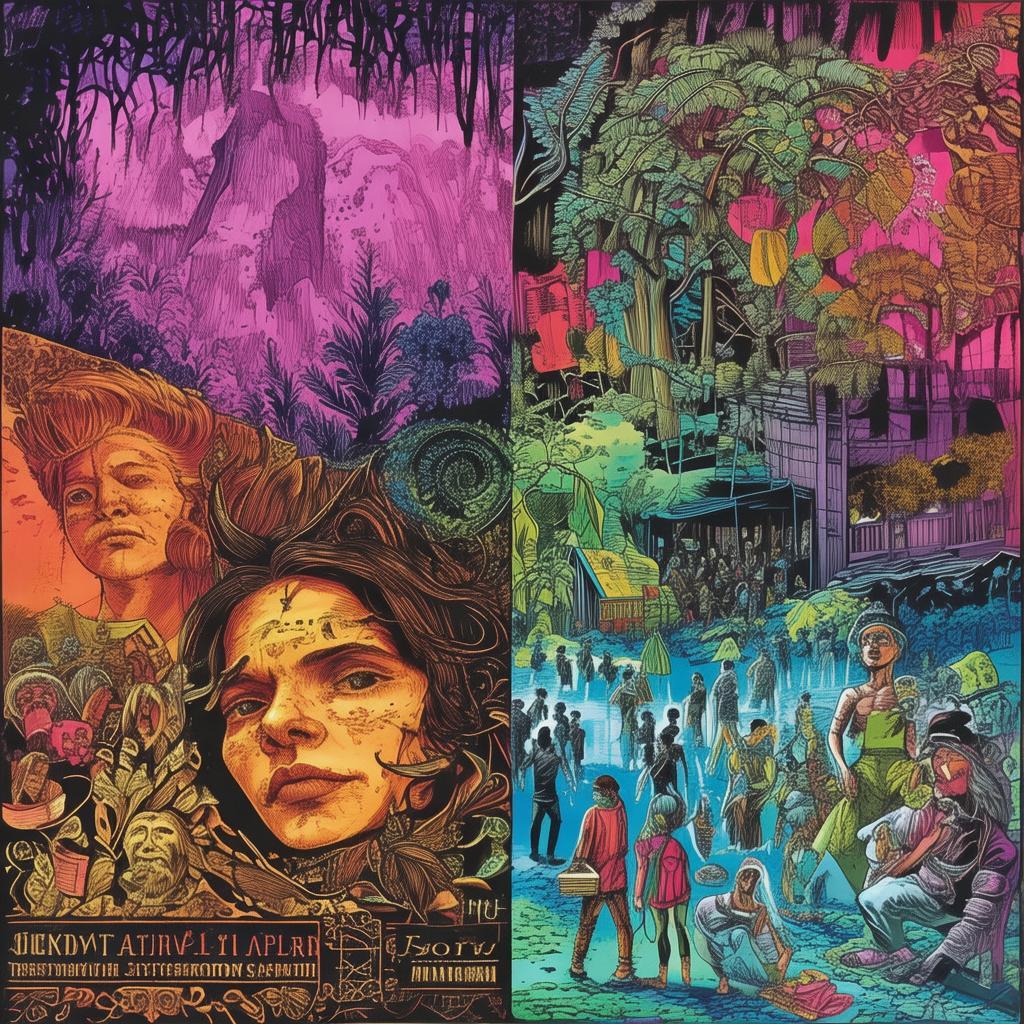The ChronoConundrum: The Manager’s Riddle
The clock tower of the old, stone building tolled midnight, its chimes echoing through the empty streets. Inside, amidst the dim light of a single flickering bulb, stood a man named Thomas. His suit was rumpled, his face etched with worry, as he stared at the riddle that lay before him.
? Opening: Suspense
"Thomas, you have until dawn to solve this riddle," the voice crackled over the intercom, cutting through the silence. "The future of your company depends on it."
The riddle was simple yet baffling:
In the realm of time, where moments intertwine,
A manager's fate, a conundrum divine.
He seeks the truth, with a mind unyielding,
But the clock is ticking, his time is fleeting.
"Who am I, and what is my quest?" the riddle ended, leaving Thomas to ponder the meaning.
? Character: Thomas, a corporate manager with a mind unyielding to the forces of time.
Thomas had always been a man of logic and reason, but this riddle was unlike any he had ever encountered. He flipped through the pages of the cryptic tome, searching for clues. The book was filled with esoteric symbols and cryptic phrases, but none seemed to point to the answer.
⚡ Conflict: The riddle itself, a puzzle that threatens the very existence of Thomas's company.
Just then, the door creaked open, and a figure stepped into the room. It was his assistant, Emily, her face pale and her eyes wide with fear.

"Thomas, we need to leave," she whispered urgently. "The organization is closing in."
The organization. The shadowy group that had been trying to take over his company for years. They were ruthless, and Thomas knew they would stop at nothing to get what they wanted.
? Conflict: The impending threat from the organization, adding urgency to Thomas's quest.
"Where are we going?" Thomas asked, his mind racing.
"To the past," Emily replied. "The only way to stop them is to go back to the moment when everything began."
? Development: The introduction of Emily as a key character and the revelation of a solution to the problem.
Thomas's eyes widened in disbelief. Time travel was a reality, but it was also a dangerous game. He had always been skeptical of its existence, but now he had no choice but to trust Emily.
? Development: The introduction of time travel as a key element of the story.
The two of them stepped into a small, dimly lit room filled with strange equipment. Emily activated the machine, and a blinding light enveloped them.
When the light faded, they were in a different place, a different time. They were in the 1920s, the era of flappers and prohibition. Thomas looked around, trying to make sense of his surroundings.
? Development: The use of time travel to create a new setting and add depth to the story.
"Where are we?" Thomas asked, his voice barely above a whisper.
"This is the moment when your company was founded," Emily replied. "We need to find the key to the riddle here."
? Development: The introduction of a new setting and the need to find a key to the riddle.
As they wandered through the bustling streets of the past, they encountered various characters, each offering a piece of the puzzle. A mysterious old man spoke of a "timekeeper" who could unlock the secrets of the past and future. A young woman, a librarian, mentioned a book that contained the answers to all mysteries.
? Development: The use of characters and dialogue to advance the plot and provide clues.
The clues began to piece together. Thomas realized that the riddle was about him. He was the manager, the timekeeper, and the quest was to save his company from the organization.
? Climax: The realization of Thomas's role and the quest's true nature.
As dawn approached, Thomas and Emily raced back to the present, their minds racing with the knowledge they had gained. They activated the time machine once more, and as the light faded, they were back in the room with the riddle.
? Climax: The return to the present and the activation of the time machine.
Thomas took a deep breath and looked at the riddle again. This time, it made sense. He knew the answer.
? Climax: The protagonist's understanding of the riddle.
"I am the manager," Thomas whispered, "and my quest is to protect my company."
? Climax: The protagonist's revelation of his identity and quest.
With that, Thomas turned to Emily and smiled. They had done it. They had solved the riddle, and with it, they had saved their company.
? Conclusion: The resolution of the conflict and the saving of the company.
As the sun rose, casting a warm glow through the window, Thomas and Emily left the room, their mission complete. The organization had been thwarted, and Thomas's company was safe.
? Conclusion: The resolution of the story and the protagonist's success.
The ChronoConundrum: The Manager’s Riddle was a tale of courage, logic, and the power of time. It was a story that would be remembered, a story that would be shared, a story that would resonate with readers everywhere.
✨ Original Statement ✨
All articles published on this website (including but not limited to text, images, videos, and other content) are original or authorized for reposting and are protected by relevant laws. Without the explicit written permission of this website, no individual or organization may copy, modify, repost, or use the content for commercial purposes.
If you need to quote or cooperate, please contact this site for authorization. We reserve the right to pursue legal responsibility for any unauthorized use.
Hereby declared.









